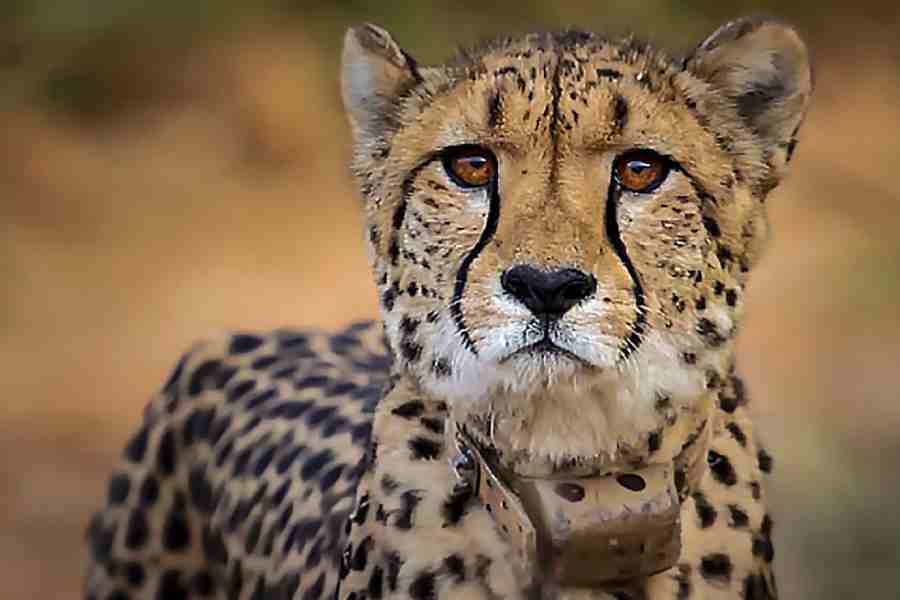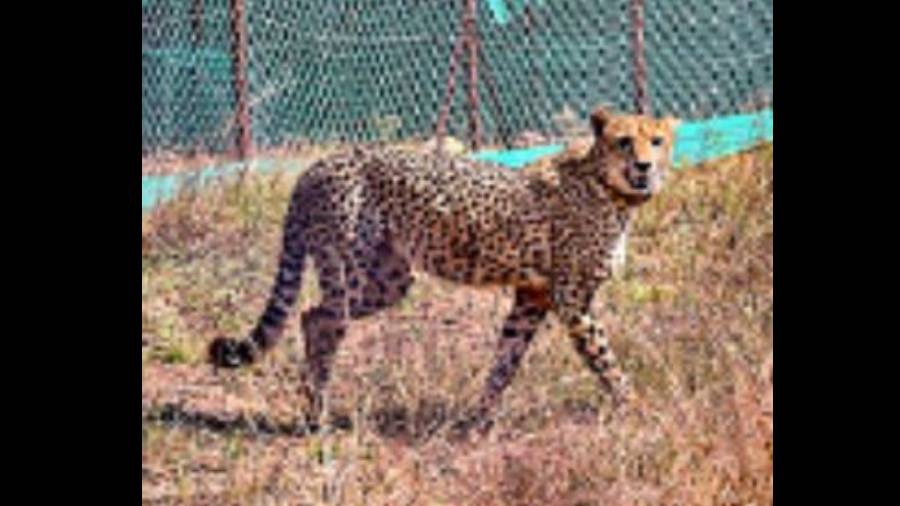India lost three cheetah cubs in the Kuno National Park on Tuesday, Madhya Pradesh forest officials said on Thursday, attributing the deaths to heat, malnutrition and lack of response to treatment attempts by veterinarians.
In all, India’s cheetah introduction project — for which Prime Minister Narendra Modi had himself released the first set of cheetahs in Kuno on his birthday last year, amid TV cameras and fanfare — has lost three adults and three cubs.
When a Namibian cheetah gave birth to four cubs in Kuno in March this year, Union environment minister Bhupender Yadav had tweeted: “I am delighted to share that four cubs have been born to one of the cheetahs translocated to India on 17 September 2022, under the visionary leadership of PM Shri Narendra Modi ji.”
Till Thursday evening, the environment minister’s Twitter page had not mentioned the cub deaths.
The Union environment ministry on Thursday shared a media release from the Madhya Pradesh forest department announcing the cub deaths.
Sections of wildlife biologists who are familiar with large cat ecology said the deaths merely underscore the risks inherent in the project to introduce cheetahs in India’s wild, which some have labelled a “vanity project”.
“For such a project, a few births do not signal success and a few deaths do not signal failure,” said Ravi Chellam, a wildlife biologist in Bangalore and coordinator of the Biodiversity Collaborative, a network of conservation organisations and researchers. Chellam is among scientists in India who believe the project has weak scientific foundations and has been pushed through amid inadequate preparedness.
The Madhya Pradesh forest department had on Tuesday announced the death of one cub, attributing it to dehydration and weakness. The department said on Thursday that veterinarians observing the mother and the other three cubs had noticed that two cubs were showing restricted movement and weakness. The veterinarians tried to provide treatment but the two cubs “collapsed during treatment”, an official said.
The department said that May 23 was a particularly hot day with day temperatures exceeding 45 degrees Celsius.
But two wildlife biologists familiar with the project said they were puzzled by the deaths of the cheetah cubs in the absence of any infection, particularly so because the cubs were expected to do well within their fenced enclosures, safe from predators and under constant supervision.
“Cheetah cub survival can be very high actually in protected areas, in fenced reserves where there are no issues with other predators,” a cheetah specialist in South Africa told The Telegraph. “Cub survival is low in wild areas where there is competition with other predators — where lions or hyenas end up killing the cubs. But if such predators are not around, the cub survival is generally pretty high. Sometimes, mothers may easily raise five or six cubs to maturity.”
An Indian wildlife biologist said it was unclear whether the cubs under observation had been monitored for weight. “Death by malnourishment within a fenced enclosure is unacceptable,” the biologist said, requesting anonymity.
“Were the cubs weighed to determine their health status at any point over the past two months? At this stage, every cheetah counts,” the biologist said. “After we have 70 to 100 cheetahs, then such intervention may not be necessary.”
But project scientists disagree. They said there should be no human intervention in a project intended to create wild cheetah populations. “Human intervention to improve survival will result in proliferation of weak genes,” one scientist said.










